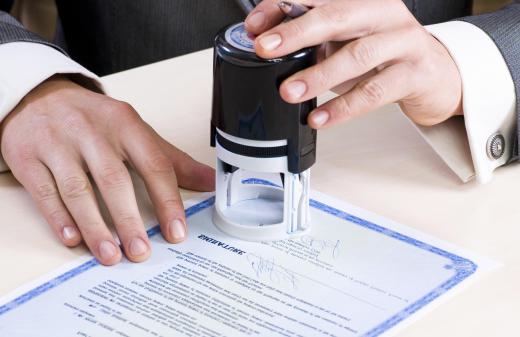An affidavit is a written declaration that is accompanied by an oath or affirmation indicating that the contents are true. Someone may make one in connection with a court case, or it may be an important supporting document in something like a mortgage application. Many forms are also affidavits, since they include a line indicating that the person has completed the form to the best of his or her knowledge, and that deliberately erroneous information can result in a perjury charge.
The word has been directly lifted from Latin, and it means that people have “pledged their faith” in full knowledge of the law. It is an entirely voluntary document, and no member of the court can force someone to give one, although the court may require someone to give a deposition. A deposition is different, because although both are written statements, a deposition includes cross examination.

The contents of an affidavit reflect the personal knowledge of the declarant. Someone will not be penalized for failing to include information that he or she did not know about. This personal knowledge may also include personal opinion in some cases, although it must be clearly stated as opinion rather than fact. Anyone may offer such a statement, so long as he or she has the mental capacity to understand the seriousness of the oath. In some cases, someone may offer one on behalf of someone else, as might be the case with the guardian of someone who is mentally ill.

In most cases, the document is witnessed by a notary public or another qualified official, such as a court clerk. Notaries public specialize in witnessing legal documents for people, usually for a nominal fee. The signature of the witness indicates that the affiant has pledged that the information is true, and that he or she understands that importance of the oath. The document may be used as evidence in court, or it may be submitted with supporting materials for things like social services.

When someone offers an affidavit, he or she should take care to read it over if it has been recorded by someone else. Since the document is accompanied with a legally binding oath, it is important to make sure that the facts are clearly and accurately represented. If there are errors in the document, they should be corrected before it is signed, whether or not this is convenient for the officials taking down the information and witnessing it.
